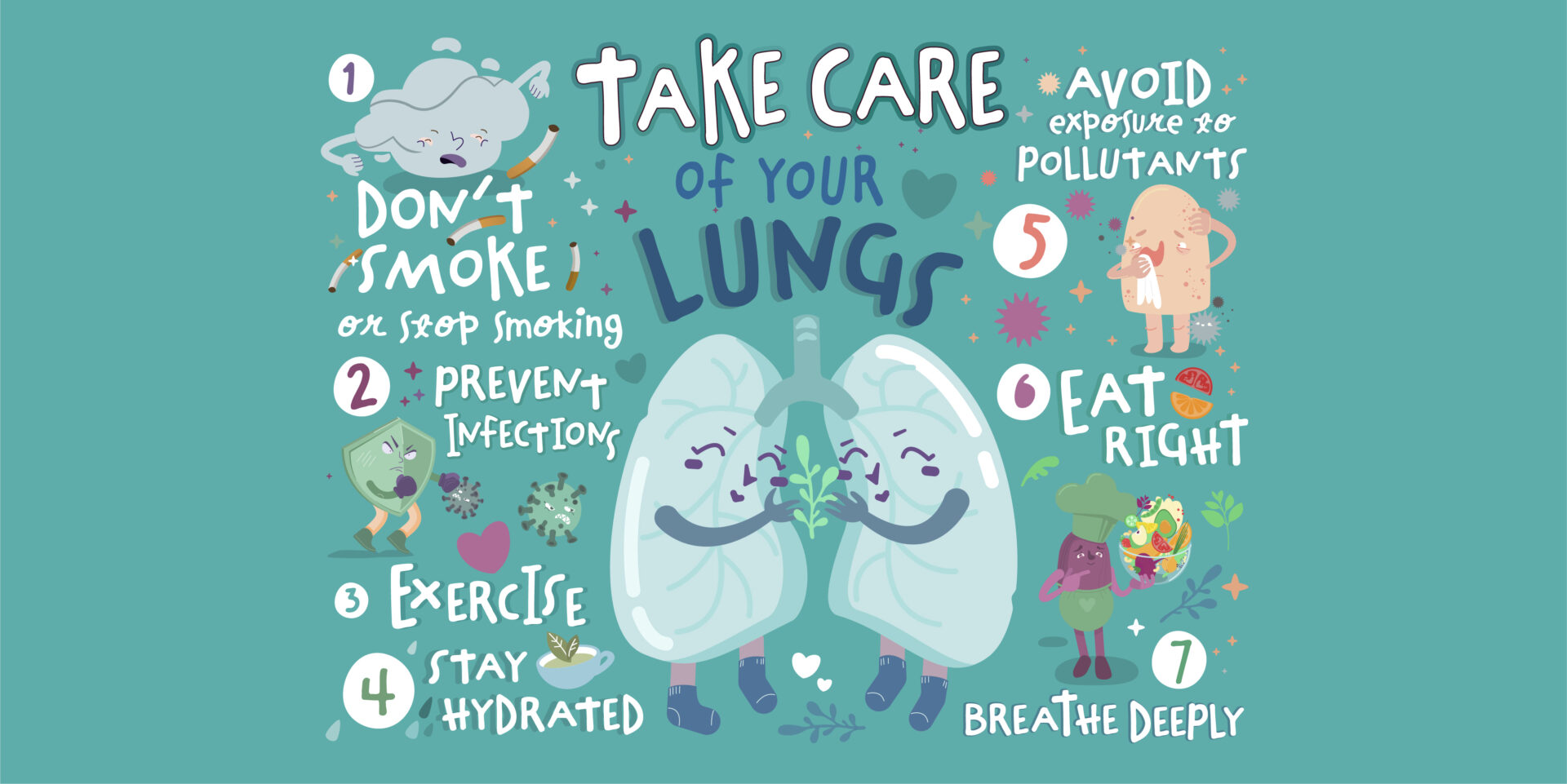Last Updated on October 24, 2024
Introduction
There are times when lungs go unnoticed, however, they are essential to the respiratory system, tirelessly working behind the scenes. Each day, an individual takes approximately 23,000 breaths, during which the lungs filter out waste and supply essential oxygen to the bloodstream and cells. Unfortunately, lung capacity can decrease as we age, making this crucial exchange more challenging.
This National Healthy Lung Month 2024 let’s focus on the importance of maintaining lung health and enhancing overall quality of life. Through awareness, community engagement, and pulmonology clinical trials, the aim is to empower individuals to prioritize respiratory wellness. In this blog, steps will be outlined that one can take to maintain lung health and even enhance lung capacity.
National Healthy Lung Month 2024 – What You Need to Know
National Healthy Lung Month 2024 is dedicated to raising awareness and educating people about the importance of maintaining good lung health. A common misconception is that only smokers develop lung cancer; however, this is not the case. In fact, around 20% of individuals with lung cancer in the U.S. have never smoked!
This year, our theme focuses on #RevivingLungHealthforAll. At Revive, we emphasize the importance of inclusive strategies that promote respiratory wellness across diverse communities. We believe everyone deserves equal access to resources that empower them to take charge of their lung health.
To help lower the risk of lung cancer and other respiratory issues, here are some effective strategies for keeping lungs healthy:
1. Don’t Smoke or Stop Smoking
If one uses tobacco, quitting is the quickest way to enhance lung health. Cigarette smoke can constrict air passages, making breathing more challenging. Long-term smoking leads to chronic inflammation in the lungs and increases the risk of serious conditions like lung cancer and COPD. Additionally, exposure to passive smoke can cause various health issues, including respiratory infections and chronic diseases. The good news is that just 24 hours after quitting, the body starts repairing itself, and the risk of disease decreases the longer one stays smoke-free.
2. Prevent Infections
For respiratory wellness, preventing infections is essential. Vaccines play a crucial role in reducing the spread of respiratory infections such as influenza, COVID-19, pneumococcal pneumonia, and RSV. This is especially important for individuals with existing lung conditions, as vaccinations can help prevent severe illness. It is important to stay informed about the latest vaccine trials to ensure optimal protection.
3. Exercise Regularly
Engaging in physical activity requires the heart and lungs to work harder to supply extra oxygen to the muscles. Regular exercise not only strengthens the lungs but also benefits the heart. As the body becomes more efficient at delivering oxygen, one will find that they are less likely to experience breathlessness during workouts.
4. Stay Hydrated
The body relies on food for energy, and oxygen plays a crucial role in the metabolism of these nutrients. Staying hydrated is essential, as it helps thin the mucus in the airways and lungs, making breathing easier. In contrast, dehydration can lead to thick, sticky mucus, which may hinder one’s ability to breathe and increase susceptibility to illness or allergies.
5. Avoid Exposure to Pollutants
While outdoor air can be cleaner than indoor air, it still contains pollutants that can harm health. Many Americans live in areas with unhealthy air quality, primarily due to ozone and particulate pollution. However, staying informed about local air quality and taking steps to protect one’s family is essential.
6. Eat Right
Eating right is vital for respiratory health, as a balanced diet strengthens the immune system and reduces lung inflammation. Incorporating a variety of fruits and vegetables, especially citrus and leafy greens, provides essential antioxidants. Omega-3 fatty acids from fatty fish and walnuts help reduce airway inflammation, while whole grains and lean proteins support overall respiratory health.
7. Breathe Deeply
Deep breathing exercises can strengthen lungs and help manage stress. These techniques enhance lung function, improve inspiratory muscle performance, and increase overall air intake and exhalation.
By incorporating these practices into lifestyle, one can significantly improve lung health and overall well-being.
Maintain Good Hygiene this National Healthy Lung Month 2024
Regular handwashing for at least 20 seconds is essential for preventing infections. When soap and water aren’t available, hand sanitizer serves as a good alternative. If feeling unwell or if infection rates are high, consider maintaining social distance or wearing a mask to reduce the risk of spreading or contracting infections.
Annual visits to a healthcare provider are vital for preventing illness, particularly regarding lung health, which can often go unnoticed until advanced stages. Always report any breathing difficulties during these appointments.
Reviving Lung Health for All
At Revive, we are committed to promoting respiratory wellness this National Healthy Lung Month 2024. As individuals age, maintaining lung health becomes increasingly vital. Our expert team empowers individuals with knowledge and provides exceptional care to support respiratory health effectively. Our research on COPD, obstructive sleep apnea, and asthma focuses on managing symptoms while exploring potential cures. Join us in our mission for #RevivingLungHealthforAll and help make breathing easier for everyone.





